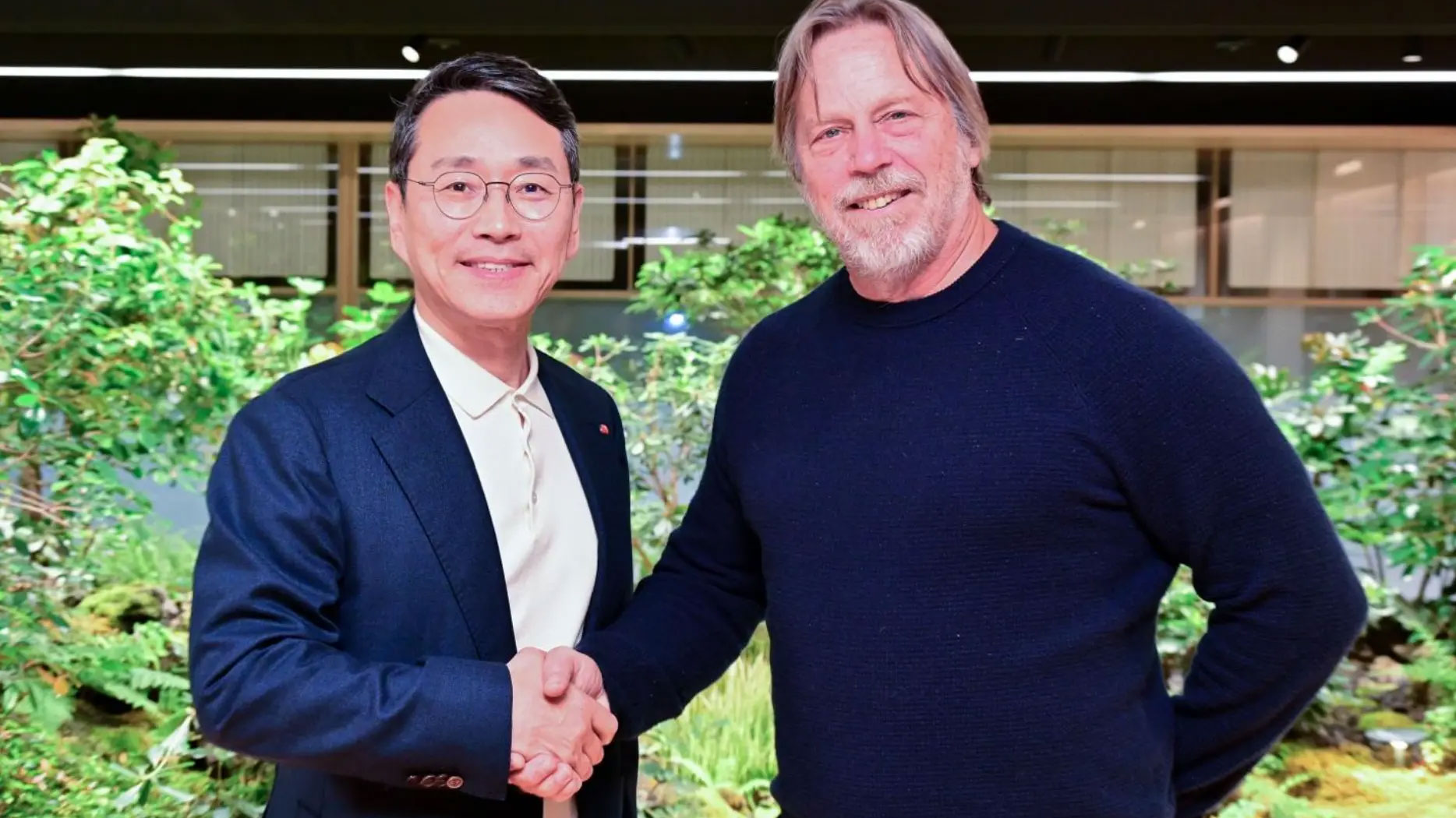LG working with Jim Keller on new ‘Affectionate Intelligence’ processor
Tenstorrent contract expands to creating AI SoCs for smart homes, video processing, and more.

LG and Tenstorrent have announced that they will expand their collaboration efforts. The tech twosome already has some SoC plans in progress, but today they voiced the intention to develop new AI chips to push forward LS’s concept of ‘Affectionate Intelligence’ in AI-powered home appliances, smart home solutions, mobility, and commercial applications.
While Affectionate Intelligence may be merely LG’s marketing Twist on AI, like Cupertino’s ‘Apple Intelligence,’ we are sure there is some serious chip design going on in the background – thanks to chip icon Jim Keller’s involvement and some other clues in today’s press release.
In our main picture, you can see LG CEO William Cho meeting with Tenstorrent CEO Jim Keller at the LG Twin Towers in Yeouido, Seoul. Other senior execs were there, from both companies, to discuss the plans for expanded collaboration.
Regular readers, with some familiarity with Tenstorrent’s recent projects, won’t be surprised that next-gen semiconductors including processors using the RISC-V architecture and multiple chiplets were hot topics during the discussions. The tech CEOs warmly praised each other, with Cho saying Keller’s firm “is bringing the industry’s best AI and RISC-V technology to this collaboration.” Keller’s response was that “LG has a strong SoC development organization and Tenstorrent is excited to continue to partner with them.” The chip architecture icon behind the Athlon 64 and Zen architectures went on to underline that any future ‘Affectionate Intelligence’ SoCs would likely come packing “our AI and RISC-V technology.”
LG recently established a dedicated SoC R&D center specializing in system semiconductor design and development, which should help along any collaborative chip design efforts. According to the press release this facility excels in chiplet-based SoC design, development, and verification. SoCs that have already come from this lab include the DQ-C for AI home appliances and the Alpha 11 AI Processor for OLED TVs.
Tenstorrent’s success in expanding its LG collaboration seems very much in line with its publicly stated strategy of looking for design wins in markets “not well served by Nvidia.” While Tenstorrent seems fully capable of designing high-performance RISC-V CPUs and AI accelerators like the Wormhole, a profitable high-volume niche in mass-market consumer goods could be a great opportunity to embrace.
Get Tom's Hardware's best news and in-depth reviews, straight to your inbox.

Mark Tyson is a news editor at Tom's Hardware. He enjoys covering the full breadth of PC tech; from business and semiconductor design to products approaching the edge of reason.
-
bit_user I'm happy for Jim and his team, but I don't find this a very surprising development. I hope it works out well for all involved.Reply
LOL, "Affectionate Intelligence" sounds like the AI will smother you with love, during the uprising. Probably not the worst way to go, I'd say.
: D -
Kamen Rider Blade Reply
or it can be the Psycho Stalker Ex-GirlFriend AI.bit_user said:LOL, "Affectionate Intelligence" sounds like the AI will smother you with love, during the uprising. Probably not the worst way to go, I'd say.
: D -
genz Reply
"Affectionate" Intelligence 😂Kamen Rider Blade said:or it can be the Psycho Stalker Ex-GirlFriend AI. -
Eximo They really just want to datamine people's appliance habits.Reply
The only feature I can think of wanting is self power limiting appliances, like don't run the electric water heater and dryer at the same time, or something like that. Plenty of external ways to do that already, but it would be cool if they could negotiate in real time to be the most efficient. And all of that only makes sense when you have solar power/power constraints/demand charges. -
bit_user Reply
For TVs, it certainly makes sense to use AI for deinterlacing, upscaling, and motion interpolation. Basically like DLSS for video (which Nvidia also has, BTW). There are also some dynamic contrast enhancement techniques, etc.Eximo said:They really just want to datamine people's appliance habits.
Of course, that has nothing to do with being affectionate. So, I'm sure the new stuff they're talking about is probably something like the stuff you mentioned, as well as trying to be predictive and adaptive. -
zangetsu-san every greedy company without a clue is bragging about how there ai product will save you from everything.Reply
soon when they fail to deliver on their promises the investors will turn on them, and the companies will go bankrupt.
this will be a good thing, then we can get back to work.
of the many companies trying to adding ai to anything and everything, ai powered butt scratchers etc, there might be 2 or 3 that will survive this nonsense. -
bit_user Reply
AI is good at learning patterns, adaptive control, and replacing heuristic-based logic. Problems which don't have a good closed-form solution (which is a lot of real world problems) are often better solved through AI than having a programmer try to think up some ad hoc rules.zangetsu-san said:of the many companies trying to adding ai to anything and everything, ai powered butt scratchers etc, there might be 2 or 3 that will survive this nonsense.
So, I don't agree that it doesn't have a role to play in a lot of contexts. Is it being oversold? Of course. Tech trends are always like that. That doesn't mean there's no meat to the claims. So, I partially agree that there will probably be point where the industry turns sour on AI, but it won't go away.
Furthermore, I'd say the only one feeling a hard crash should be Nvidia, but that's partly because it will be facing increasing competition on top of a decrease in demand. A lot of its biggest customers, like Google, MS, and OpenAI are building their own solutions, while AMD, Cerebras, and Intel are catching up to it on the open market.